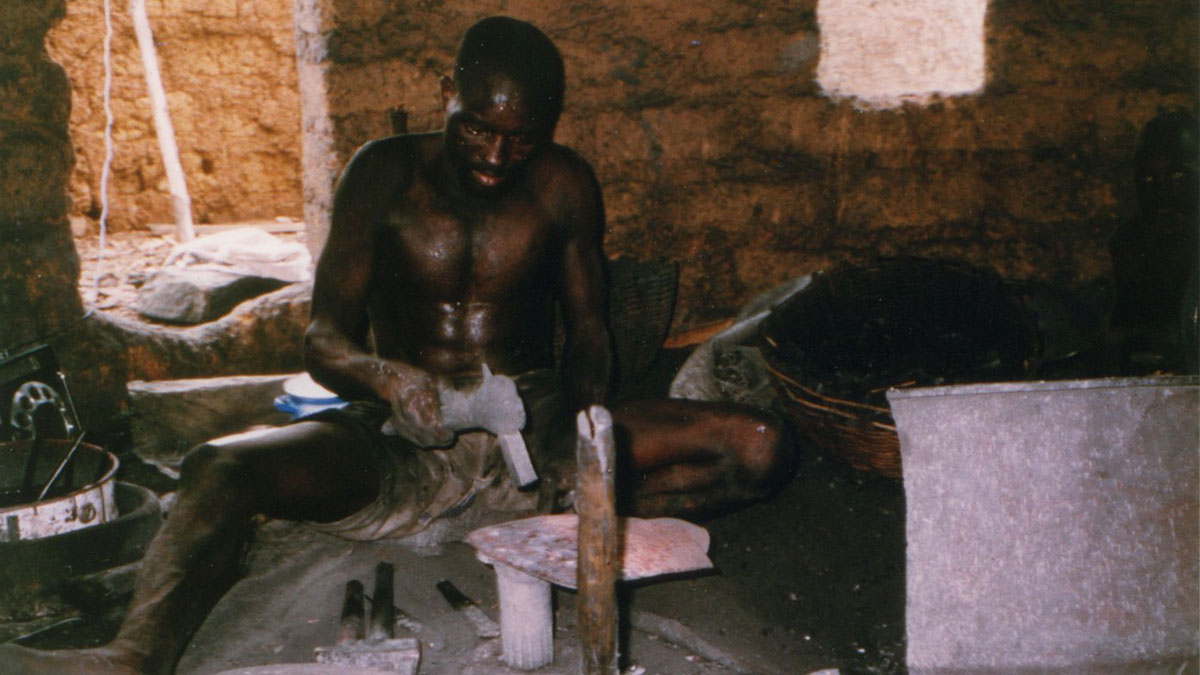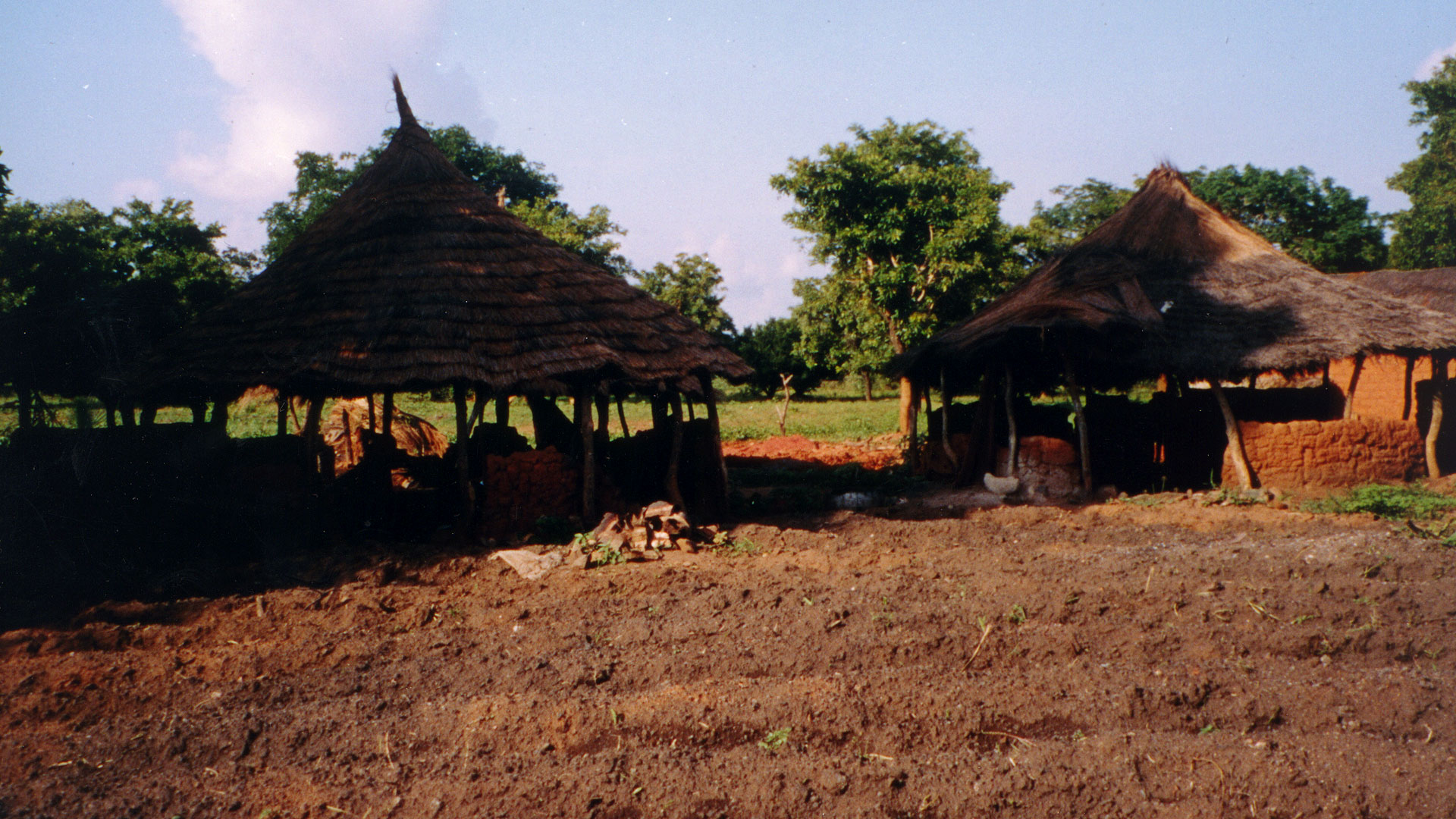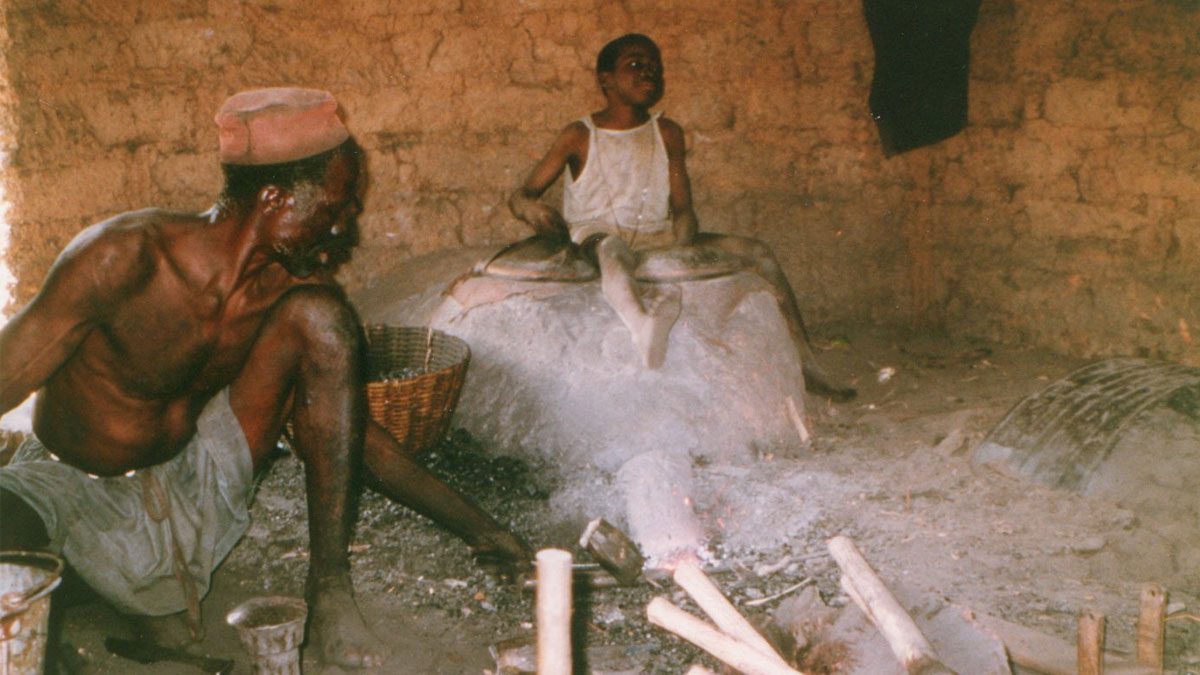Senufo-Tagba of West Africa

Occupations
Blacksmiths
Called tuntuns by the Senufo-Tagba, the blacksmiths are the men who create and repair objects made of iron. These men are very highly considered within the village. Metal is thought of as a living thing, and people think the blacksmiths must know special magic to work it properly. Traditionally, this work included every step of the metalworking process, from getting the ore and smelting it, to the creation of useful items like tools. Today, blacksmiths buy and work with scrap iron, so the retrieval and smelting steps have been eliminated.
Another type of iron worker, the fonon (pronounced fo-no) has been traditionally considered of a lower class than the tuntun. This is because in the past the fonon would not collect ore and smelt his own iron; he would only use iron that was left over when the tuntuns had finished smelting. In fact, the tuntun used to accuse the fonon of using sorcery to keep their iron from smelting completely so there was more left for the fonon to use. The tuntun and fonon make the same kinds of objects; the differences between the objects are mainly ones of style.


Family Life of Blacksmiths
The art of blacksmithing is passed from father to son. When a blacksmith has many adult sons, he may build additional shops to accommodate everyone. This does not mean that the sons become independent, though. The shops, with their own small anvils, will be clustered together around an open space where the master anvil is planted for any member of the group to use.
Because of the special nature of their profession, tuntun blacksmiths did not intermarry with non-tuntun families until recently. They will now intermarry with farming families. The fonon marry only members of other fonon families. The wives of tuntun blacksmiths brew millet beer. Fonon wives weave baskets. These baskets have a particular design and can only be used for specific tasks; they cannot be used in spaces reserved for religious purposes.
